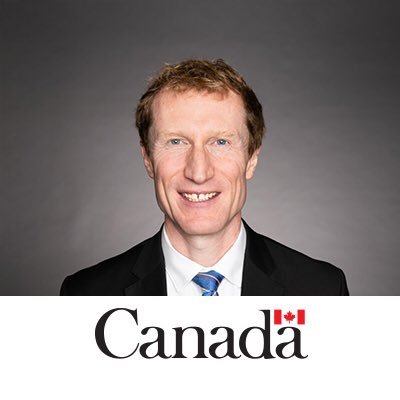
The Canadian Minister of Indigenous Services, Marc Miller, issued the following statement yesterday: “The COVID-19 pandemic is an unprecedented international emergency. My department is working hard on advancing a health response to this serious health crisis.
The ongoing delivery of essential services and supplies to remote First Nations communities in provinces where travel is currently limited is particularly challenging but critical to Canada’s overall response to COVID-19.
To minimize the risk and exposure of the virus to community members and service providers, Indigenous Services Canada (ISC) has been transporting essential service personnel and supplies via carefully managed charter flights with strict health safety
measures in place. The charter flights are often on airlines that already serve these communities and allow nursing and other personnel to board at terminals where the highest standard of health and safety procedures are being enforced.
Meanwhile, Crown-Indigenous Relations and Northern Affairs Canada is working with Transport Canada and territorial governments, that are responsible for primary health care, to ensure continuity of routes for goods and essential services in the territories and Inuit Nunangat.
The first flights to First Nations took place on April 22. That day, 45 nursing professionals were flown to and from 23 First Nations communities in fly-in communities in Ontario and Manitoba. On April 27 another 22 nursing professionals were flown to 13 First Nations communities in Ontario and 18 left the communities on the return charter flights. Flights continued on May 6, with 88 nurses flown to 35 fly-in communities in Ontario and Manitoba and 64 flying out of 31 fly-in communities on return charter flights.
These health care workers are part of the regular complement of nurses that normally service these fly-in communities. They are familiar with the communities and their continued support through this difficult time is laudable.
In addition to supporting the needs of the communities we serve, these flights help keep nurses and our other incredible health care professionals safe. One of our nurses, Ruth Lockhart, recently wrote to us to express her appreciation for the safe flight home to her family:
‘Thank you very much for all the work and effort that went into arranging the charters. I realize that this wasn’t an easy process and was quite stressful. I felt very privileged and special to be able to travel back home through the use of the charters. Thank you for looking out for us and finding the safest way home for us to be with our families.’
I am grateful for the dedication and tireless efforts shown by Ruth and all nurses during these unprecedented times. I would like to extend my heartfelt thanks to all the nurses and essential personnel taking part in these charters to serve isolated communities, and to the leadership and community members who offer a warm welcome and support to them during their stays.
Nursing and other professionals are observing mandatory two-week, at-home self-isolation prior to traveling to communities aboard these flights. They are also required to self-screen their health status. Longer (four-week) rotations into communities are taking place to minimize changes in staff and to maximize the protection of the health and safety of community members.
Providing these charters ensures that health care and infrastructure professionals, medical supplies and equipment required to maintain critical infrastructure, such as water treatment plants, will be able to access these communities. It also provides flexibility to support other community needs such as emergency management responses, food security or medivac services, as required.
In addition to maintaining critical services, this approach also provides a much-needed revenue stream to airlines serving First Nations communities, helping to support their economic long-term viability. I would also like to thank the airlines that have made this unique initiative possible.
Future flights are planned for May 20, June 3 and June 17 to fly-in communities in Ontario, Manitoba, and Alberta for nurses, as well as other health care providers such as doctors and mental health service providers. Flights will then continue every four weeks until it is safe to return to the previous process. Other flights may be scheduled to bring cargo or other critical personnel such as professionals needed to maintain or fix critical infrastructure if additional needs are identified.
Merci, Thank you, Miigwetch, Marsi, Nakumik, ay-hay, niá:wen, wela’lin, huy chexw, marsi tchogh.
Stay connected
Join the conversation about Indigenous peoples in Canada:
Crown-Indigenous Relations and Northern Affairs Canada (CIRNAC)